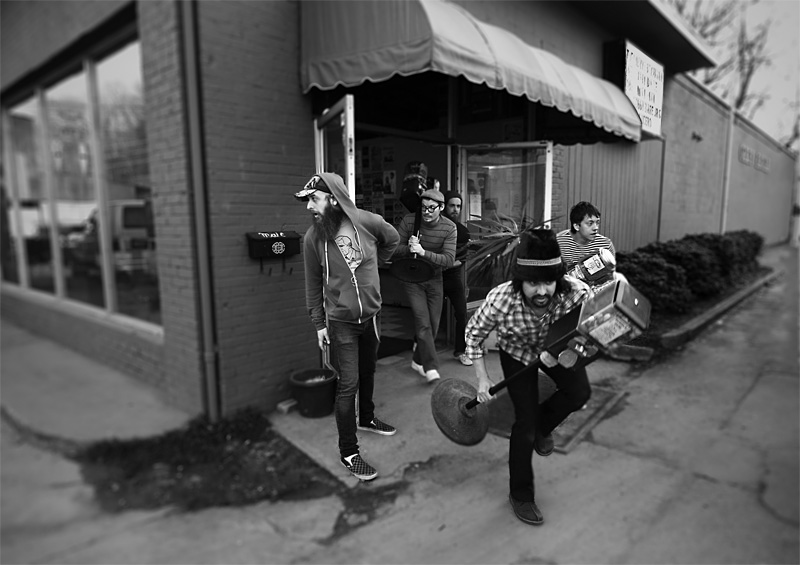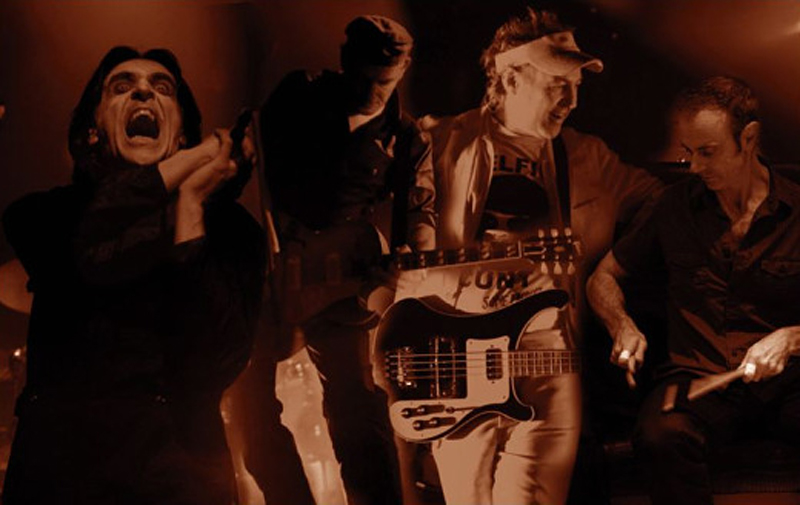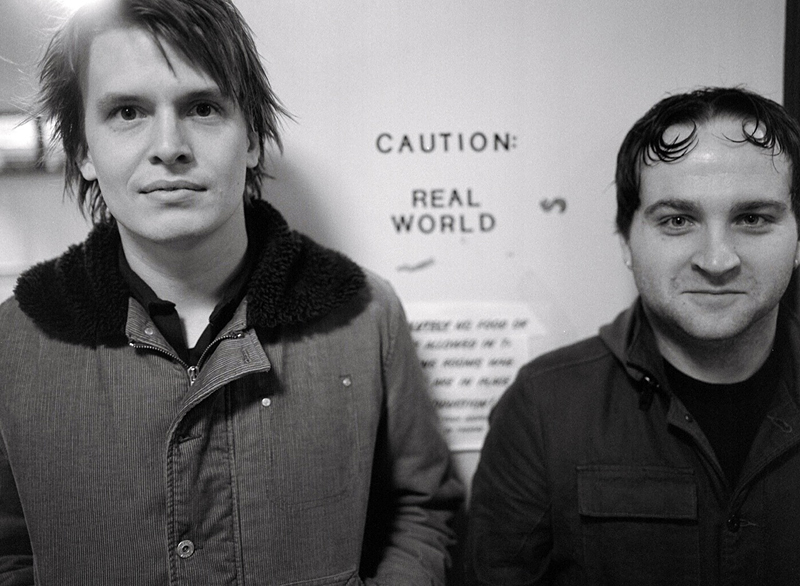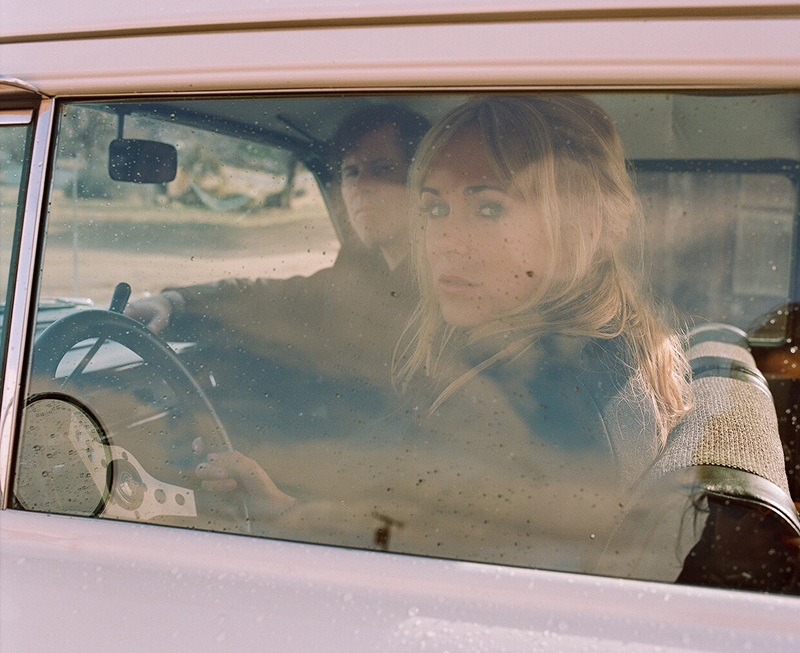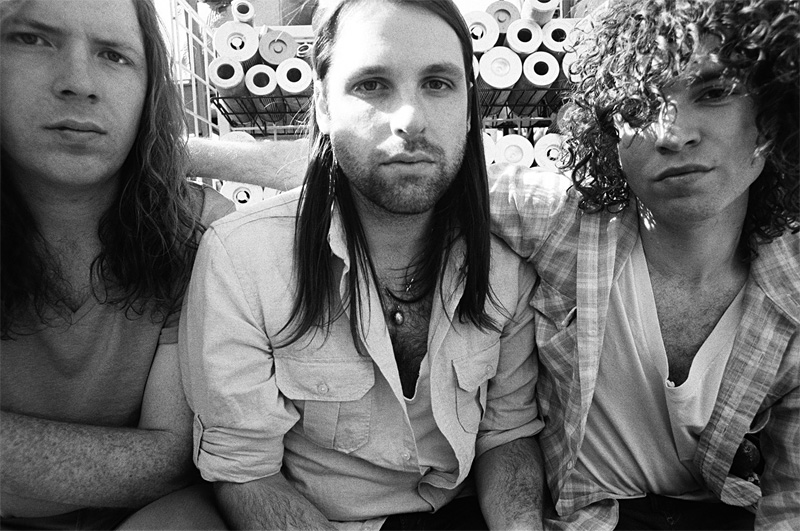There were two moments in particular this summer when Ryan Kattner (better known by his stage name, Honus Honus)–singer, multi-instrumentalist, and chief madman of the chaotic, experimental Philadelphia rock ensemble Man Man–knew he was on to something compelling, if disquieting, with the band’s in-progress fourth album.
The first was when he played the demo of an especially grim song for his parents. “My mom, she doesn’t really listen to music the way most people do. She loves Camelot. That’s not a dig, that’s just what she’s into,” Katter says. “So after the song in question was done playing—and I’ve never heard my mom say anything like this before—she goes ‘Whooooof, that was intense.’ And then after my father heard it, he called me and he was like, ‘I like this song, I just had to call you and hear your voice to make sure everything was OK.'”
The second was while Kattner was driving around Omaha with Mike Mogis—the Saddle Creek Records co-founder and member of Bright Eyes and Monsters of Folk—who’s helming the Man Man album, due early next year on ANTI- (their second for the label, following 2008’s acclaimed Rabbit Habits). Mogis had just dropped off his young daughter Stella—who sings all over the album—at summer school, and told Kattner there was one song she was especially drawn to. “Mike said the song scared the bejesus out of her, but she felt this urge to always want to hear it. There’s a line about a mother who has three daughters who drove her crazy, so she chopped them up and threw a party with ‘dead daughter confetti.’ There’s a scary feeling, but she still got pulled toward it, like looking at a car crash. Or going to a friend’s funeral and there’s nothing you can do about them being dead, so you just have to enjoy who they were.”
Those who’ve followed Man Man since their striking 2004 debut LP, The Man in a Blue Turban With a Face, know the band—centered around Kattner and multi-instrumentalist Chris “Pow Pow” Powell (the rest of the six-man lineup has changed during the group’s existence)—has long reveled in the grotesque, the beautiful, the deranged, the upsetting, and the absurd all at once. Their daring, unconventional stew combines Kattner’s guttural howls with bits of Balkan punk, Looney Tunes–channeling madness, Beefheart rock, primal blues, psychedelic sea shanties, and more. More things Man Man sounds like: Bone Machine–era Tom Waits on a four-month bender. A gypsy caravan tumbling off a crumbling mountain road. An acid nightmare starring swamp creatures playing Devo covers. Vikings versus cavemen, armed with clubs and trash-can lids. A carnival of the damned, with Screamin’ Jay Hawkins as ringleader.
And when they come to town, they hit the stage like marauders, typically dressed in white and covered in war paint, with Kattner perched on his Fender Rhodes piano while the others stomp madly among some two dozen instruments strewn around them—guitars, horns, clavinets, sousaphones, pots and pans, ancient fire extinguishers, and more—to bring their manic, fiery mini-symphonies to life.
But from the way Kattner’s talking, this trip to Seattle—Man Man’s Neumos show on Wednesday, Sept. 8 is among their precious few live appearances this year—to play mainly new material promises to be the beginning of one of the outfit’s darkest journeys yet.
“This band is essentially the psyche of an imbalanced person,” Kattner says. “While we’ve been making this record, I’ve had the rug in my personal life pulled out from beneath me, and doing this has been a way of coping. You can let these things eat you up, or…” His voice trails off before continuing. “I mean, I hate songwriting. It’s kind of like Wrath of Khan, the scene where they put the weird desert earwigs in their ears. It’s squirming around in my head and I can’t get it out. I probably would’ve had a much more content, boring life if I didn’t have that earwig put in my ear to write songs. But writing music is how I deal with shit. Unfortunately, the guys in my band have to deal with how I deal with shit.”
Though Kattner declines to discuss his specific personal demons, or the band’s internal dynamics, Philly producer/engineer Bill Moriarty (Dr. Dog, Drink Up Buttercup, etc.)—who worked on Blue Turban and Rabbit Habits—recalls his experiences with Man Man to shed some light: “A lot of people get very frustrated with him; he rubs some people the wrong way,” says Moriarty. “We’re friends now, but at one time he and I were totally clashing—before we worked together, we didn’t really get along. My hunch is that when he’s alone, writing the lyrics, it’s probably coming from some real pain. And not in a way of, like, ‘Hey, I’m gonna try and help people with this.’ It’s probably coming from a lot of genuine turmoil, which is the way it has to come out for him. He’s a really determined guy. The music the rest of the band writes around it is disturbing or unnerving or confusing, but I think it comes from being excited, not tortured or whatever. I think the rest of them think of Man Man as a pretty joyous thing.”
How Kattner’s current frame of mind manifests itself in the yet-untitled new album remains to be heard, but longtime fans such as Philadelphia Weekly music editor Brian McManus, an early and ardent Man Man champion, are curious to see how the band evolves.
“A couple years ago, Ryan gave me a recording they never ended up using—a cover of Etta James’ ‘I’d Rather Go Blind.’ Their version of it is gorgeous, and it’s easy to forget, among all the usual Man Man wall-of-carnival sound, just how soulful Honus’ voice can be,” McManus says. “There’s a song on Rabbit Habits, ‘Doo Right,’ that’s a great example of that, too. It’s bluesy and soulful and cool. I’d like to see them strip down a bit and expose that element more. But then again, I love the fast-paced, out-there shit, too, so I don’t know. Maybe they can do a healthy mix of both?”
Kattner himself doesn’t want to give too much away—the live set will likely provide some clues about the band’s newest chapter—but, he allows, “This record makes sense, it’s a natural progression. It’s dark, but there’s that playfulness about us that I don’t wanna ever give up on. There has to be a playfulness and a sense of humor because the world is a shit-show, and if you can’t find a way to laugh with and at it, then what’s the point?”
